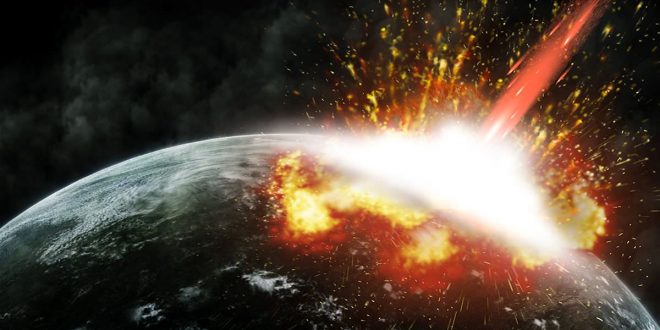Sad day for the four horsemen of the Apocalypse: NASA scientists say a giant asteroid won’t be hitting Earth in 2036, as earlier feared, an asteroid named Apophis will collide with the Earth, causing the extinction of human species.
It was in 2004 that NASA detected asteroid Apophis. For the past thirteen years, astronomers in NASA have been observing the celestial body, and finally, they have come to the conclusion that a deadly hit may occur in 2036. The news has been confirmed by Duane Brown, a NASA official at the Washington Headquarters.
Steve Chesley, a NASA scientist, along with his fellow teammate Paul Khodas from the jet propulsion laboratory of NASA, learned the trajectory of the asteroid since 2009, and they predict that the collision may cause precisely on April 13, 2036. The updated orbit of Apophis was finalized after observations made by Dave Tholen and his collaborators at the University of Hawaii’s Institute for Astronomy.
“Apophis was one of those heavenly bodies, which attracted the interest of the public, as it was discovered in 2004. Updated computational techniques and newly available data indicate the probability of collision of the Earth April 13, 2036,” writes NASA on its website.
In 2029, Apophis is expected to come uncomfortably close, brushing past the Earth at a distance of just 30,000 kilometres. That will put the asteroid inside the orbit of communication satellites.
Current models predict a tiny but real likelihood of Apophis colliding with the Earth in 2036.
Scientists at the American space agency Nasa have calculated that if Apophis struck the Earth it would generate a blast equivalent to more than 500 megatons of TNT.
In comparison, the most powerful hydrogen bomb ever detonated, the Soviet Tsar Bomba, released 57 megatons.
Agencies/Canadajournal
 Canada Journal – News of the World Articles and videos to bring you the biggest Canadian news stories from across the country every day
Canada Journal – News of the World Articles and videos to bring you the biggest Canadian news stories from across the country every day



